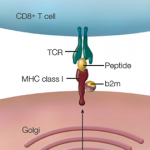Attendees at the 2009 ACR/ ARHP Annual Scientific Meeting will find multiple opportunities to increase their knowledge. Here are a few of the sessions planned for basic researchers:
Regulatory Functions of Mesenchymal Stem Cells in Rheumatologic Diseases
This session—which will be presented by Darwin J. Prockop, MD, PhD, from Texas A & M Health Sciences Center College of Medicine Institute for Regenerative Medicine at Scott & White Hospital in Temple, Texas; Yufang Shi, PhD, from the University of Medicine and Dentistry of New Jersey in Newark, N.J.; and Rocky S. Tuan, PhD, from the University of Pittsburgh—will focus on novel immunomodulatory properties of mesenchymal stem cells (MSCs). It was designed in an effort to help attendees better understand the biological mechanisms underlying MSC-based therapies in arthritic diseases and the clinical implications of MSC-based therapies in rheumatic diseases.
Genetics/Genomics of Rheumatoid Arthritis Pathogenesis
This session will focus on the progress that has been made in identifying susceptibility genes within the already identified susceptibility regions and on the current understanding of the genetics of rheumatoid arthritis (RA). Its objective is to provide attendees with an understanding of genome-wide association studies and candidate gene studies, including assessments of gene function. Peter K. Gregersen, MD, from the Feinstein Institute of Medical Research at North Shore University Hospital in Manhasset, N.Y., will cover functional studies in genes that have been implicated in susceptibility to RA—including PADI4 and PTPN22—and provide an update on the pathogenesis of RA that has been discovered by taking a genetic approach to the disease process.
Gene Expression Profiling Insights into Systemic Lupus Erythematosus Pathogenesis
This session will feature an innovator in the field, Virginia Pascual, MD from the Instituto Nacional de Ciencias, Mexico. Dr. Pascual will focus on gene profiling in systemic lupus erythematosus. In addition, the session will highlight new concepts in this field and provide an overview and context for understanding gene profiling.
B Cell Function and Dysregulation
The critical role of B cells in autoimmune disease, how B cells are selected and regulated, and the role of key cytokines will be highlighted in this session. Its goal is to provide unique insights into autoimmune pathophysiology and the diverse effects of new biologic treatments. Some areas that the session presenters—Frances E. Lund, PhD, from the University of Rochester Medical Center in Rochester, N.Y.; Joseph E. Craft, MD, from Yale University School of Medicine in New Haven, Conn.; and Anne Davidson, MB, BS, from the Feinstein Institute for Medical Research at North Shore University Hospital in Manhasset, N.Y.—will include newly elucidated antibody-independent B cell functions, regulation of autoreactive B cells within the germinal center reaction, the role of B cell–activating factor in this regulation, and the crosstalk between B cells and follicular helper T cells and other T-cell subsets.

